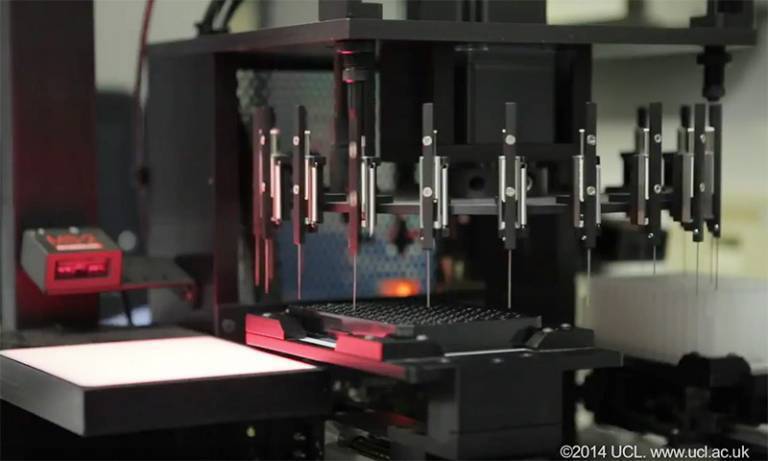UCL Eisai strategic alliance tackles Alzheimer's and Parkinson's
The UCL and Eisai partnership seeks to discover novel therapeutics for neurological diseases. The first drug candidate to result from their joint research, E2814, has been selected for a new trial.

22 April 2021
Neurodegenerative disorders are one of our biggest medical, societal and financial challenges. Research conducted by The Alzheimer's Society in 2019 revealed over 850,000 people with dementia in the UK. The findings also showed this figure could double over the next 20 years. Currently, there is no cure for dementia or treatment to hold back its progression.
In 2012, UCL and Eisai formed an alliance to identify and validate novel drug targets across key processes in neurodegeneration. The two organisations have a long history of working together, but this was a new model in industry-academic collaboration. Spearheaded by the UCL Translational Research Office, who are driving sustained engagement with senior Eisai Open Innovation Directors, the groundbreaking Therapeutic Innovation Group combines both parties' complementary capabilities.
E2814 has been chosen by the Dominantly Inherited Alzheimer Network Trials Unit (DIAN-TU) as the first investigational anti-tau drug in their clinical studies. DIAN is an international research partnership, led by Washington University School of Medicine, to test experimental therapies to slow the advancement of Alzheimer's. Tau plays a central role in disease progression, and E2814 targets parts of tau that can spread damage in the brain.
Professor Alan Thompson, Dean of UCL Faculty of Brain Sciences, said: "This achievement is a result of the unique partnership which brings together UCL's world-class academic research capabilities and Eisai's industry, drug discovery expertise. This next phase of the collaboration highlights the success of combining our expertise to work towards developing innovative treatments for patients with neurodegenerative diseases."
Find out more
- Eisai
- UCL Translational Research Office Business and Innovation Group (B&IG)
- Brain Sciences and Eisai news story
 Close
Close

